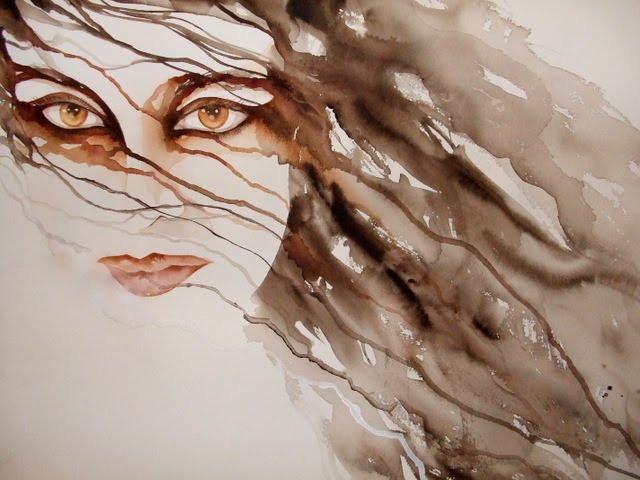 Artwork by PATRICIA VANNUCCI
Artwork by PATRICIA VANNUCCI
Many spiritual paths teach that to cling is to feel pain. Moreover, sometimes we hold onto things, events, and people even though we know it hurts. The question is, why? Who would knowingly cause themselves pain?
Often, we’re attached as a result of temptation. This is usually the case when we hang on to pleasantries, or even those things that fulfill some dark gratification. For instance, think of over-eating when on a diet, or picking at a scab. These are habitual practices that we know are detrimental but do anyway. But what about those subtler habits that we often miss unless we are very conscious individuals?
A while back, I was at an intersection, waiting for the light to change. As I was wont to do in quieter moments, my mind wandered and eventually settled on an incident that happened some time ago. The details of the incident are irrelevant, but it was upsetting, and when I remembered it, I started to feel angry. I paused for a moment and then decided to accept the anger fully. I did not try to suppress it, think about something else, or transform it. I was simply aware of it and let it be.
When I did this, the anger remained, but I did not mind. The sensation of anger seemed about as significant as a growling stomach, and I was perfectly content to let it be.
However, once I became content with the anger, I felt like a part of me was slipping away. As a result I found myself reaching for the familiar pain of anger once again!
In the example above, I ultimately refused to accept my anger, fully aware of the consequences, and with no apparent gratification. Yet, there was something there that must have been gratifying to hold on to at some level. What was it? The answer lay in the fear of slipping away; the fear of losing my self image.
Before continuing, let’s define self image. Also known as identity, self image is a mental model of ourselves. It arises when we identify with certain objects, places, ideas, etc. Common objects of identification are the body, thoughts, roles, family, possessions, values and tastes. For example, my self image may be that of a middle class, intelligent, stoic person. Not too bad, but what is the problem?
The issue is that we become attached to this self image. When that happens, anything that challenges it seems very dangerous. In turn, we react as though our survival is at stake, and begin to defend that image. The inevitable result is pain.
In my story, one aspect of my identity then was emotional control. So accepting anger challenged my stoic self image, and I reacted defensively. Ironically, the defense made me MORE susceptible to anger. Sadly, this sort of battle is ubiquitous.
Each element of our self image can be challenged and is a potential battlefield. The more such elements, the more challenges. The more identifications, the more anxiety and pain. For instance, defining ourselves by our wit, possessions. and looks means any event with the possibility of unfavorable social interactions, financial setbacks, or aging may hurt us.
In short, one reason we cling is not because we are ignorant of the consequences, but because our self image demands it. Given this claim, letting go of this identity can eliminate an enormous amount of hardship. By releasing our grasp on the self image, we are letting go of the belief that it defines us and accepting that identity is just a set of concepts that can, will, and has changed.
Questions
1. If the problem with identity is that it creates specific objects of attachment which can be challenged, can we expand it to encompass everything, so that it cannot be challenged?
2. Can we form a self image free of clinging?
3. Are there things we hold onto that are not tied to our self image?
By Guest-Writer, Ahmed
If you enjoyed this article and want to get involved, please subscribe to the blog, like us on facebook, and follow us on twitter or Google+.

Well, this is a classic BR post. I don’t think I have much to add, since we’ve been discussing these issues for quite a while! As always, perfectly written and clinically precise. Congratulations on the guest post!
On number 3: I’d say yes. We hold onto our loved ones and I don’t think that is related to our self-image (unless we do some verbal acrobatics). If my wife dies I’ll be devastated and it will have nothing to do with the kind of person I think I am. It will just have to do with missing her.